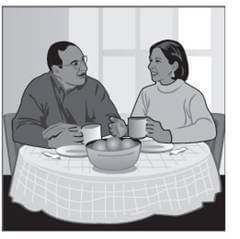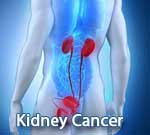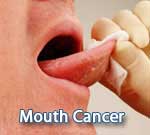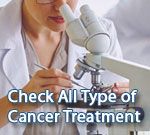Ovarian Cancer
Follow-up Care
Ovarian cancer and its treatment can lead to other health problems. You may receive supportive care to prevent or control these problems and to improve your comfort and quality of life.
Your health care team can help you with the following problems:
- Pain: Your doctor or a specialist in pain control can suggest ways to relieve or reduce pain.
- Swollen abdomen (from abnormal fluid buildup called ascites): The swelling can be uncomfortable. Your health care team can remove the fluid whenever it builds up.
- Blocked intestine: Cancer can block the intestine. Your doctor may be able to open the blockage with surgery.
- Swollen legs (from lymphedema): Swollen legs can be uncomfortable and hard to bend. You may find exercises, massages, or compression bandages helpful. Physical therapists trained to manage lymphedema can also help.
- Shortness of breath: Advanced cancer can cause fluid to collect around the lungs. The fluid can make it hard to breathe. Your health care team can remove the fluid whenever it builds up.
- Sadness: It is normal to feel sad after a diagnosis of a serious illness. Some people find it helpful to talk about their feelings
Nutrition and Physical Activity
 It's important for women with ovarian cancer to take care of themselves. Taking care of yourself includes eating well and staying as active as you can.
It's important for women with ovarian cancer to take care of themselves. Taking care of yourself includes eating well and staying as active as you can.
You need the right amount of calories to maintain a good weight. You also need enough protein to keep up your strength. Eating well may help you feel better and have more energy.
Sometimes, especially during or soon after treatment, you may not feel like eating. You may be uncomfortable or tired. You may find that foods do not taste as good as they used to. In addition, the side effects of treatment (such as poor appetite, nausea, vomiting, or mouth sores) can make it hard to eat well. Your doctor, a registered dietitian, or another health care provider can suggest ways to deal with these problems.
Many women find they feel better when they stay active. Walking, yoga, swimming, and other activities can keep you strong and increase your energy. Whatever physical activity you choose, be sure to talk to your doctor before you start. Also, if your activity causes you pain or other problems, be sure to let your doctor or nurse knows about it.
You will need regular checkups after treatment for ovarian cancer. Even when there are no longer any signs of cancer, the disease sometimes returns because undetected cancer cells remained somewhere in your body after treatment.
Checkups help ensure that any changes in your health are noted and treated if needed. Checkups may include a pelvic exam, a CA-125 test, other blood tests, and imaging exams.
If you have any health problems between checkups, you should contact your doctor
Complementary Medicine
It's natural to want to help yourself feel better. Some people with cancer say that complementary medicine helps them feel better. An approach is called complementary medicine when it is used along with standard cancer treatment. Acupuncture, massage therapy, herbal products, vitamins or special diets, and meditation are examples of such approaches.
Talk with your doctor if you are thinking about trying anything new. Things that seem safe, such as certain herbal teas, may change the way your cancer treatment works. These changes could be harmful. And certain complementary approaches could be harmful even if used alone.
You may want to ask your doctor these questions before you decide to use complementary medicine:
- What benefits can I expect from this approach?
- What are its risks?
- Do the expected benefits outweigh the risks?
- What side effects should I watch for?
- Will the approach change the way my cancer treatment works? Could this be harmful?
- Is this approach under study in a clinical trial?
- How much will it cost? Will my health insurance pay for this approach?
- Can you refer me to a complementary medicine practitioner?
Sources of Support
Learning you have ovarian cancer can change your life and the lives of those close to you. These changes can be hard to handle. It is normal for you, your family, and your friends to have many different and sometimes confusing feelings.
You may worry about caring for your family, keeping your job, or continuing daily activities. Concerns about treatments and managing side effects, hospital stays, and medical bills are also common. Doctors, nurses, and other members of your health care team can answer questions about treatment, working, and other activities. Meeting with a social worker, counselor, or member of the clergy can be helpful if you want to talk about your feelings or concerns. Often, a social worker can suggest resources for financial aid, transportation, home care, or emotional support.
Support groups also can help. In these groups, patients or their family members meet with other patients or their families to share what they have learned about coping with the disease and the effects of treatment. Groups may offer support in person, over the telephone, or on the Internet. You may want to talk with a member of your health care team about finding a support group.
It is natural for you to be worried about the effects of ovarian cancer and its treatment on your sexuality. You may want to talk with your doctor about possible sexual side effects and whether these effects will be permanent. Whatever happens, it may be helpful for you and your partner to talk about your feelings and help one another find ways to share intimacy during and after treatment.





































